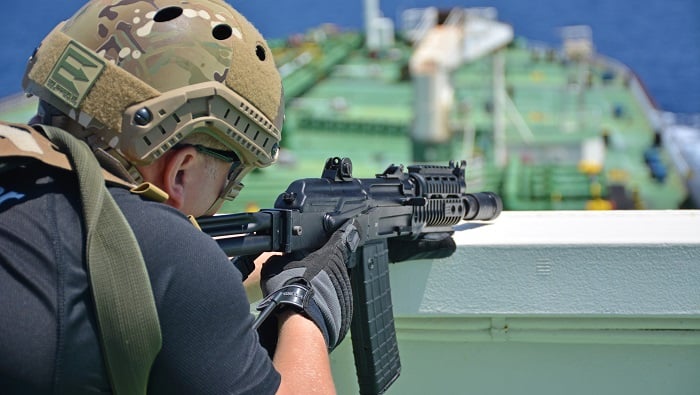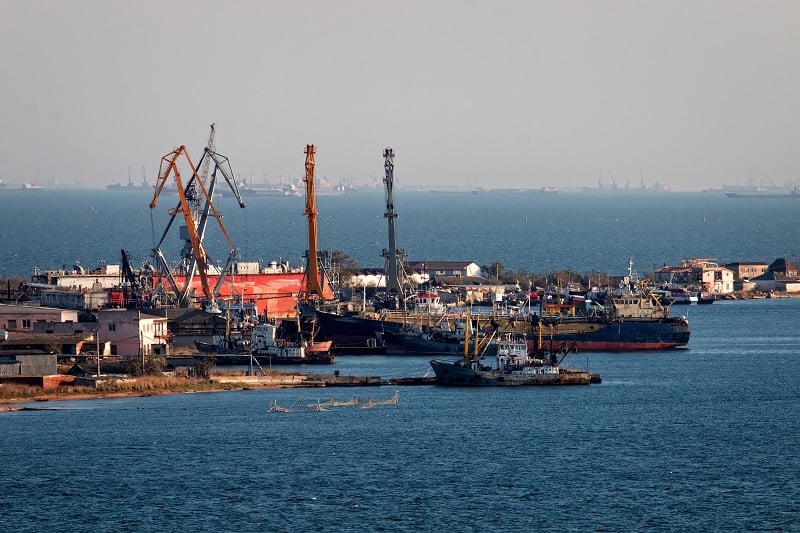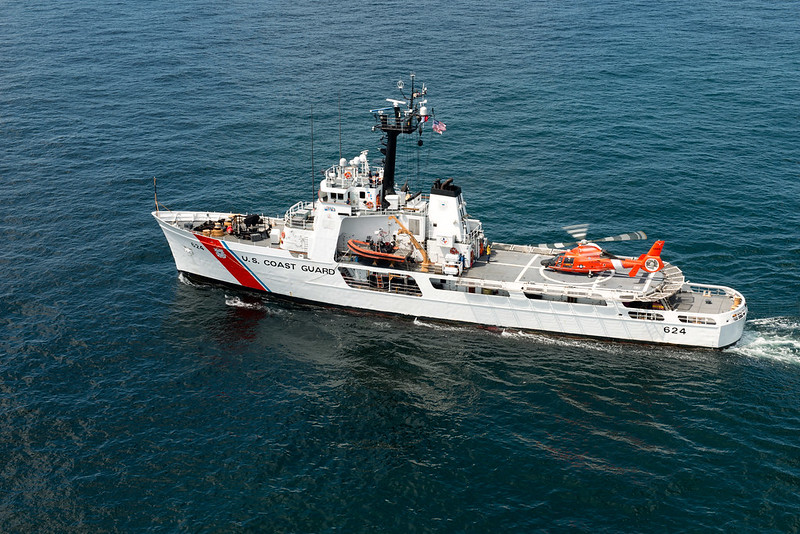Leadership Insights Series: Maritime Security and Piracy round-up

2020 saw a year-on-year increase in global piracy incidents, with the Gulf of Guinea (GoG) region account for 90% of seafarer kidnappings worldwide. Maritime security and risk experts at the ICS Leadership Insights live event on 28 April discussed solutions needed for the GoG, as well as other maritime security risks shipping should keep on their radar in 2021.
2020 saw a year-on-year increase in global piracy incidents, with the Gulf of Guinea (GoG) region account for 90% of seafarer kidnappings worldwide. Maritime security and risk experts at the ICS Leadership Insights live event on 28 April discussed solutions needed for the GoG, as well as other maritime security risks shipping should keep on their radar in 2021.
Esben Poulsson, Chair of ICS, opened proceedings noting concerns over piracy in the GoG as well as other regions including the Gulf of Mexico, stressing that piracy and armed attacks against ship’s crews remains a “significant issue for shipping”.
“But piracy is not the only security threat that shipping faces,” he added. “Simmering geopolitical tensions, most recently in the Ukraine which are threatening to spill over to the Sea of Azoz, and this weekend’s attack on an oil tanker off the coast of Syria means that shipping must remain constantly alert to an increasingly diverse threat environment.
Geopolitical tensions
Commercial shipping has and will continue to become embroiled in geopolitical issues. Julian Clark, Global Senior Partner, Ince gave the example of the 2019 seizures of Iranian-flagged Grace 1 by Gibraltar, suspected of breaking trade sanctions to deliver oil to Syria, and what is widely- accepted to be the retaliatory seizure of the UK-flagged Stena Impero vessel by Iran.
Clark said:
“This case highlights the need for the sector to be aware of geopolical tensions and how they have an impact and play a role international shipping.”

Hans Tino Hansen, CEO, Risk Intelligence, gave an overview of the major geopolitical tensions that shipping should be staying abreast of this year.
The ongoing conflict between Russia and Ukraine is most notable in the Sea of Azov, he stated. Russia has put restrictions on ships able to enter the Sea of Azov and Russia’s Ministry of Defense has said it will block all non-commercial vessels and warships seeking to travel through the Kerch Strait until October 2021.
“We have seen that there is still commercial traffic going through the Kerch Strait but we don’t know if this will have an impact on commercial shipping,” Hansen said. “Right now, we do not see threats for commercial shipping. If something was to happen it would be indirect or as collateral damage, being in the wrong place at the wrong time.”
In the East Mediterranean offshore operations face “mild security threats from differing interests” between Turkey, Greece and Cyprus, Hansen outlined, but stressed the bigger issue is indirect threats from electronic warfare operations by various navies operating in the waters:
“You may lose navigation systems, other communication systems for periods of time due to jamming. This is not directed against civilian shipping but will hit anyone in the area.”
Similar electronic warfare indirect threats to commercial shipping exist in the South China Sea and in waters off North and South Korea, Hansen explained.
Shipping should continue to keep an eye on the ongoing Yemen conflict, but Hansen said most commercial vessels will not be purposely targeted. Caution should be exercised for vessels moving Saudi or UAE oil and gas, as well as Saudi and UAE flagged vessels. “There have been a number of attacks in the Red Sea”, said Hansen.
The Israeli/Iranian nuclear conflict is also a matter for maritime to pay close attention to. Hansen said his firm has logged 19 incidents between April 2019 and April 2021, but stressed exchanges have been mostly targeting Iranian export of crude oil to Syria. “Any threats to commercial shipping would again be a case of being at the wrong spot at the wrong time,” he said.
Unified response
All speakers noted the significant threat piracy poses in the GoG region and the need for a unified, collaborative response to the issue.
Clark said that geopolitical tensions in the region by state actors and a “multiplicity of jurisdictions and littoral states” seeking to take ownership of the issue, has served to undermine the multilateral action needed to fight against piracy in the GoG.
Hansen added that unlike the Somali piracy problems that began in 2008 and peaked in 2011, piracy in West Africa is not seen as a strategic problem for international trade and so there is less political will to resolve it. He added that even for Nigeria piracy is “not in its top 10 or 15 strategic issues for government”.
However, Michael Howlett, Director, International Maritime Bureau, expressed hopes that momentum built up early this year to tackle piracy in the GoG will not be lost:
“In early 2021 there was a spotlight on the region as attacks and kidnapping were continuing and there was momentum to find a solution. This coincided with a noticecable lull in meaningful piracy activity between mid-February to mid-March as operations stepped up from the Nigerian navy to enhance security in the regions. Exercises like these should be encouraged and sustained as it had a clear impact.”
While Howlett said recent international naval assistance is “greatly welcomed” in the short term it is not a sustainable in the long term. Speakers agreed ultimately the issue is a regional one, and should be solved regionally.
The Gulf of Mexico

Pirate attacks are far less common in the Gulf of Mexico – four were reported in 2020 – yet Lt Commander Ellen Motoi, U.S. Coast Guard (USCG), said it is likely many pirate attacks go unreported in the region. The main driver behind attacks in the Gulf of Mexico is armed robbery, she said, rather than kidnap for ransom.
“Millions of dollars in sophisticated gear, navigation equipment, fuel, is taken into the black market and criminal organisations are making a very lucrative profit,” she said.
Pirates are also targeting support vessels that service the hundreds of oil platofrms in the oil rich Bay of Campeche.
Motoi stressed that the Gulf of Mexico is a priority for the US as the piracy is happening so close to its own waters:
“We have to ask ourselves what does the future look like? We know piracy is not going away, there is an explosive growth in energy-based exports. Or what about the Panama Canal and the increase in shipping with more sophisticated locks allowing larger ships to come in, with hundreds of vessels transiting through this area and to the United States?”
Motoi urged shipping to keep sharing information and reporting piracy events. She also backs a collaborative approach and information sharing between governments and maritime bodies, industry and international and domestic partners.
“There’s no one agency that can do this alone. Using a whole of government approach is the most effective way to combat piracy concerns in these high-risk areas, including the Gulf of Mexico.”
Watch the full event below: